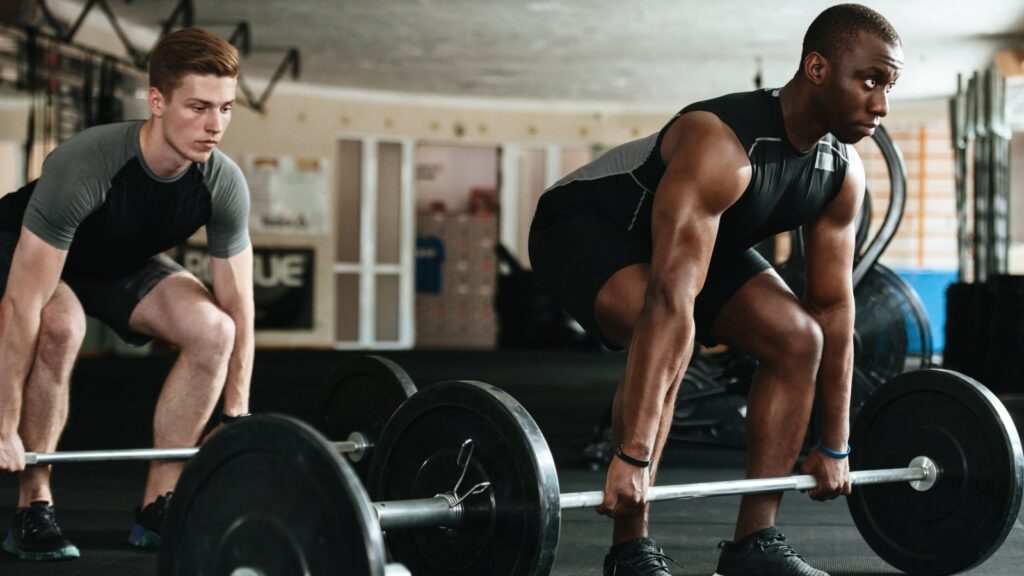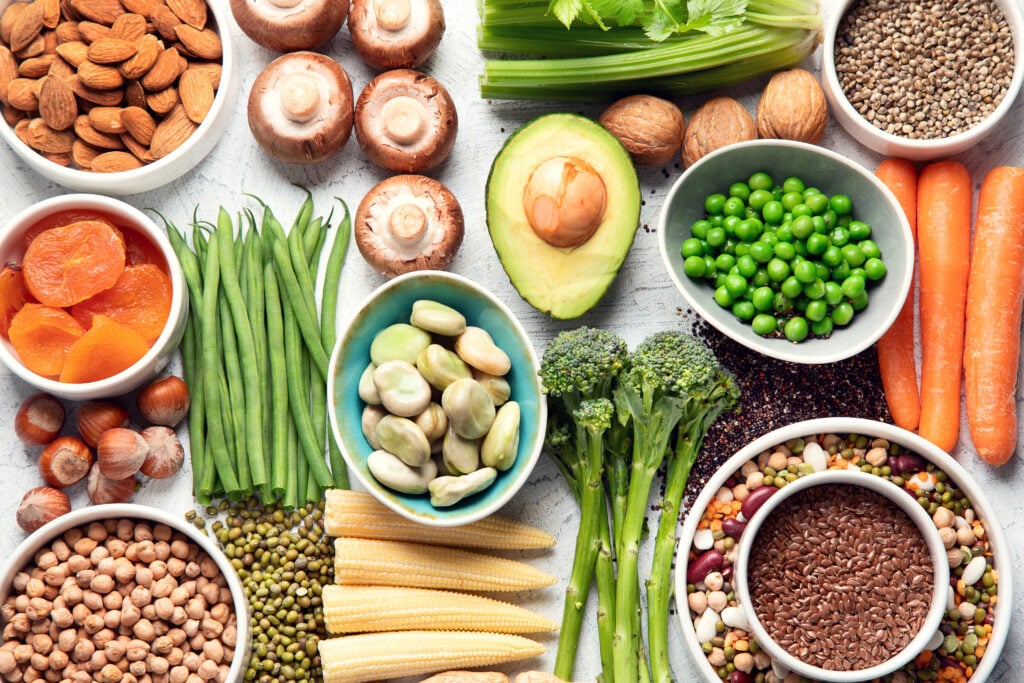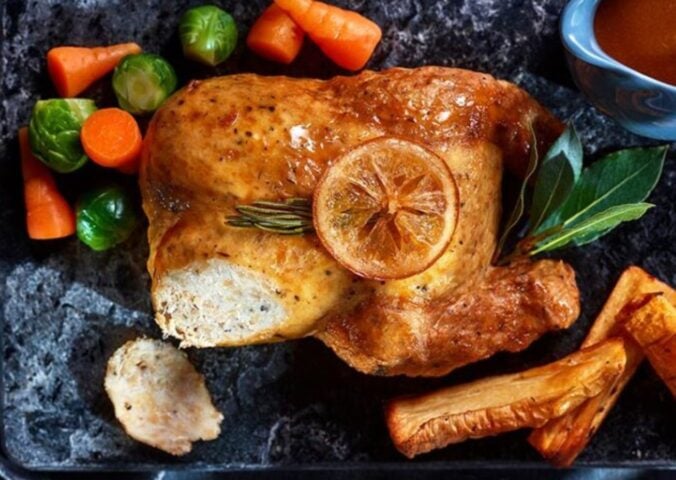Vegan athletes have popularised plant-based diets for athletic performance, but some people wonder if you can build muscle with plant-based protein.
Ominvores focus on meat, eggs, and whey protein to increase their strength and power, but these aren’t the only foods that can help people build muscle.
Read on for a deep dive into how the body builds muscle and how training and diet influence this. And, find out how someone can optimize their nutritional intake in order to build muscle on a plant-based diet.
How muscle is built

How much muscle people build depends on what and how much they eat and their training regime. Other factors such as sex and age are also relevant.
Calories and protein
Skeletal muscle protein alternates between a positive and negative balance in response to fasting and feeding.
After eating, muscle protein serves as a repository of amino acids. The body can break down these proteins and reincorporate them into muscle protein or use them for other physiological needs, such as energy, the immune system, and enzymes.
According to the International Society of Sports Nutrition (ISSN), there are some key concepts to be aware of regarding protein and muscle mass:
- A hyperenergetic diet (excess calories) combined with protein supplementation and a heavy resistance training program may promote increases in muscle size and lean body mass
- A hypoenergetic diet (reduced-calorie) combined with an elevated protein intake of two to three times the recommended daily amount plus a resistance training program can promote greater losses of fat mass and overall improvements in body composition
Resistance training
Muscular hypertrophy is the term that refers to muscle growth. People build muscle by doing resistance training such as weight lifting.
There are two types of muscular hypertrophy – myofibrillar and sarcoplasmic.
Myofibrillar hypertrophy
Myofibrillar hypertrophy is an increase in the myofibrils, which are parts of muscle cells. As the myofibrils increase, the muscle becomes denser and stronger.
This type of muscle growth occurs when people lift heavier loads with lower reps.
Sarcoplasmic hypertrophy
Sarcoplasmic hypertrophy is an increase in the sarcoplasmic fluid in the muscle cell. This process creates larger, less dense muscles, but some research suggests that it increases the size of muscle fibers too.
Sarcoplasmic stimulating training (SST) involves higher reps and building muscle size, but it may not be as beneficial for strength as myofibrillar training.
In summary, sarcoplasmic training may show greater increases in muscle size and myofibrillar greater increases in strength. Therefore people can adapt their training according to their goals.
However, according to a 2020 review, there are still significant knowledge gaps in human studies regarding how different training and duration affect muscle adaptations.
How to optimise your nutritional intake to build and maintain muscle
Calculating calorie and protein intake
People who want to build muscle must know their overall calorie intake and how much protein they eat.
To calculate how many calories they need a day, someone can use the Harris-Benedict Equation, which uses the basal metabolic rate to determine daily energy expenditure.
Experts advise adults to consume 10-35% of their daily calories as protein or 0.75 grams per kilogram of body weight per day (g/kg/d) for general health. However, these recommendations are for the general population who may do minimal exercise.
The ISSN recommends 1.4 – 2g/kg/d of protein for healthy, exercising individuals to build and maintain muscle mass.
Furthermore, the ISSN notes that there is evidence that higher-protein intakes of over 3 g/kg/d may have positive effects on body composition in resistance-trained people.
For example, a person who weighs 140 pounds/63.5kg would need to consume between 89 – 127g of protein per day to build or maintain muscle.
Amino acids in foods
People following a plant-based diet also need to ensure they are consuming protein from a range of different sources.
Amino acids in foods are building blocks for protein. Animal proteins contain all nine essential amino acids, and nutritionists refer to them as ‘complete’ proteins, as they are able to synthesize (or make) a complete protein.
However, while some plant foods such as soy and quinoa are complete proteins containing all nine essential amino acids, other plant foods don’t have sufficient amounts of some aminos. When a food contains less of a particular amino acid, nutritionists refer to this as a ‘limiting’ amino acid.
For example, the limiting amino acid in cereal grains is lysine, and in beans is methionine.
However, a varied plant-based diet ensures that someone consumes a range of amino acids to synthesize protein adequately.
Moreover, it’s a myth that people have to eat complementary proteins at the same meal, but this can be an excellent strategy to remember to plan your proteins, for example, eating rice with beans.
Additionally, research indicates that the branched-chain amino acid leucine triggers muscle protein synthesis and promotes recovery and adaptation in exercise. Plant-based sources of leucine include soybeans, lentils, and pea protein.
Vegan protein sources

Here’s an idea of some plant-based protein sources and quantities that amount to just under 100g of protein (98.16 g):
- 2 tablespoons of peanut butter (32g) = 7.1 g protein
- pea protein 22g serving = 19g protein
- hulled hemp seeds (30g) approx 1.5 tablespoons = 10g protein
- 50g rolled oats – 7g protein
- half cup tofu – 10g protein
- one cup edamame beans – 18.4g protein
- one cup cooked quinoa – 8.14g protein
- one cup of unsweetened soy milk –8.52g protein
- One bowl of lentil soup 10g protein
Additionally, a healthy plant-based diet includes an abundance of high-protein vegetables, and these all contribute to someone’s daily protein requirements. For example, a cup of green peas contains 7.86g of protein, and a medium broccoli stalk contains 4.28g (ideal for blitzing into broccoli ‘rice’).
Example meal plan
Using the plant-based foods above, the meal plan below shows how someone could achieve around 100g of protein in a day’s meals. Bear in mind that all the additional veg and bread also contribute protein, so the total daily protein consumed would be more than 100g. Additionally, someone would need to work out how many calories they need to achieve their training goals and if these meals need to be adapted for calories or other macros to suit them.
Breakfast: Oatmeal with soy milk, cinnamon, and a tablespoon of peanut butter
Morning snack: Smoothie made with pea protein, berries, an apple, and coconut water
Lunch: A bowl of lentil soup and a side salad with greens, broccoli, mushrooms, and hemp seeds, a slice of wholegrain toast
Afternoon snack: A tablespoon of peanut butter with celery sticks and two oatcakes
Dinner: Stir fry with edamame beans, tofu, peppers, carrots, and scallions served with quinoa
Related articles…
Other considerations
These are some additional considerations for people wanting to build muscle on a plant-based diet.
Calorie intake
The high fiber in a plant-based diet can lead to early satiety and a risk of not consuming enough calories. To increase muscle size, someone needs to consume enough calories from nutrient-dense foods.
Foods with healthy fats can make higher calorie diets easier to achieve, and a person could include nuts and nut butter, seeds, avocados, and olive oil.
Meal timing
Various differing advice exists about meal timing and exercise.
For example, after exercise, the Academy of Nutrition and Dietetics, Dietitians of Canada, and the American College of Sports Medicine suggest consuming 0.3 g/kg body weight of protein every three-to-five hours over multiple meals.
The ISSN summarises that the total protein and calorie intake may be more relevant than meal timing.
Some people choose to consume high-protein foods such as a shake following a workout, which may help muscle synthesis.
However, the ISSN suggests that if someone consumes a meal containing amino acids less than five hours before exercise, there is less need to consume protein post-exercise immediately.
Additionally, plant-based diets provide adequate carbohydrates sources that can help replenish glycogen as part of a balanced meal.
Creatine
Creatine is an organic acid that people synthesize in their bodies from glycine, arginine, and methionine. Animal products are rich sources of creatine, but vegans may have lower levels in their bodies.
Creatine may improve exercise performance, muscle hypertrophy, and strength.
A 2017 review indicates that creatine supplementation may be most beneficial for athletes with low pre-existing muscle creatine stores and suggests it may be an important ergogenic aid for vegan athletes to consider.
Recovery
Vitamins, minerals, and phytonutrients can help someone recover from exercise and perform optimally. A plant-based diet provides an abundance of micronutrients and antioxidants.
However, some nutrients are low in a plant-based diet, and people may need to supplement, for example b12. This approach can help someone to maintain optimal health, recovery, and performance.
People absorb nutrients in the gut, and gut health is essential to someone’s overall health and wellbeing. Eating a whole foods plant-based diet can help to support the gut and the microbiome.
Other key aspects to consider for recovery are adequate sleep and hydration, and strategies for stress management.
What do the experts say?
One of the common misconceptions about building muscle is that one needs to consume copious amounts of protein, particularly animal protein, in order to achieve muscle-building results
Matt Frazier and Robert Cheeke, authors of ‘The Plant Based Athlete’
The proof is in the pudding, and more and more athletes are attributing success to a plant-based diet.
Robert Cheeke and Matt Frazier are two prominent and successful vegan athletes. They have recently authored a book which is a New York Times bestseller, The Plant-Based Athlete. They told Plant Based News:
“One of the common misconceptions about building muscle is that one needs to consume copious amounts of protein, particularly animal protein, in order to achieve muscle-building results. The reality is that muscle is built as a byproduct of resistance weight training, combined with a total calorie surplus. This is excess calories consumed beyond daily calorie expenditure. And when requisite calorie volume is attained, adequate protein intake is achieved.
“That is because our actual protein needs represent a small portion of our total calorie intake. If we consume 1.2g-2.0g of protein per kilogram of body weight, we position ourselves to build muscle, so long as we are consistent with both nutrition and training programs, while also getting necessary amounts of sleep, hydration, and micronutrient intake.
“The most important action of all, though, is to be consistent with your calorie intake compared to your expenditure. You need to ensure you position yourself to build muscle in the first place. As your calorie needs are met, your protein needs are met, and you can achieve your desired results with a fully plant-based diet, as countless thousands of plant-based athletes have demonstrated for decades.”






